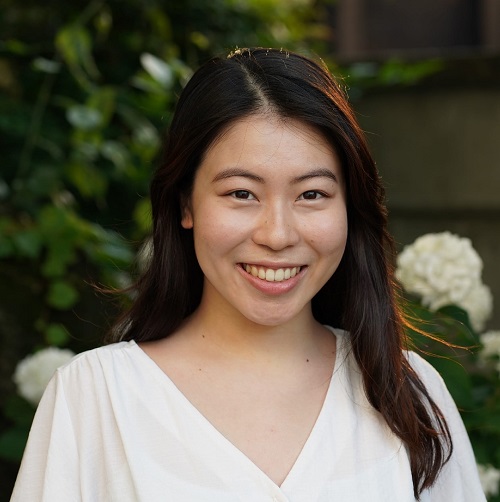June 11, 2025
Lisa Orii receives Global Innovation Fund Award to integrate AI in app-based person-centered contraception services in Kenya
 Congratulations to Lisa Orii, PhD candidate in the School of Computer Science & Engineering and Global WACh Graduate Certificate Program, for receiving a 2025 UW Global Innovation Fund Award. The fund supports transformative cross-college, cross-continent research collaborations and global Husky learning experiences at UW.
Congratulations to Lisa Orii, PhD candidate in the School of Computer Science & Engineering and Global WACh Graduate Certificate Program, for receiving a 2025 UW Global Innovation Fund Award. The fund supports transformative cross-college, cross-continent research collaborations and global Husky learning experiences at UW.
Lisa will work with researchers at UW and Kenya Medical Research Institute (KEMRI) on a project titled, “Co-Design of Chatbots for App-Supported Person-Centered Contraceptive Decision Support among Adolescent Girls and Young Women in Kenya in the Pharmacy Setting.” The research team includes Drs. Elizabeth Harrington (UW Global Health and Obstetrics & Gynecology), Elizabeth Bukusi (KEMRI), Serah Gitome (KEMRI), and Richard Anderson (UW Computer Science & Engineering).
The award supports research that builds on a multi-year project aimed to improve sexual and reproductive health among adolescent girls and young women (AGYW) through informed choice and to support reproductive autonomy. Previously, the team developed a novel mobile application (the Mara Divas app) to provide contraceptive decision support tailored to AGYW seeking contraceptive services in the pharmacies. Informed by co-design of an initial prototype of the app and a feasibility study in Kisumu County, Kenya, they are now exploring opportunities to expand the utility of the Mara Divas app with chatbots.
In April 2025 in Kisumu, the team conducted human-centered design workshops with AGYW and pharmacy workers to co-design chatbot prototypes. The goals of the workshops were to identify directors for chatbot-enabled contraceptive care and inform future iterations of the app. With this funding support, the team will lay the groundwork for identifying the technical opportunities, challenges, and risks in incorporating artificial intelligence into the Mara Divas app, and moreover, improving contraceptive counseling in the pharmacy setting.
The project outcomes will benefit the field of maternal-child health for its contributions to the broader agenda of improving contraceptive counseling for AGYW, who lack resources and support that are tailored to this population. Lisa’s hope is that this research highlights the importance of centering AGYWs’ needs, values, and preferences in designing digital resources for a sensitive topic. This work prioritizes incorporating AGYW experiences and perspectives from early in the research process through participatory design activities. Their involvement in the research gives an opportunity to voice their concerns and desires about contraceptive care – something that is valuable for ensuring that the tools we build align with what AGYW want and need.